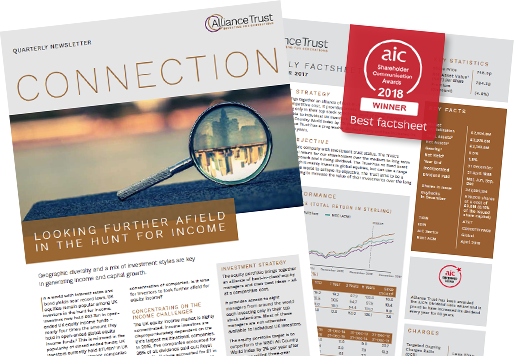Things are looking up, a bit
The economic outlook is gradually brightening. Having reached a low point in February, Chinese GDP growth has recovered sharply, led by its manufacturing and investment sectors, and economic growth in the US, Europe and other advanced economies has started to pick up, notably in May and June.
In general, therefore, the prospects for equities have improved. Indeed, current equity prices are consistent with good expected returns over the next 5 years if corporate earnings begin to recover in line with economic growth in the second half of the year.
But the path ahead for public health, economic growth and corporate are still subject to a high degree of uncertainty and the shape of the recovery remains unclear.
Even so, we can expect large divergences in economic performance between countries given large differences in the number of virus cases and the size of fiscal and monetary support from governments and central banks.
In general, less developed economies will suffer more than advanced economies, at least in the near term, though developed countries such as the United States still have huge challenges fighting the Covid-19 virus.
While China has reduced its case number down to a 7-day average of just a few hundred, the equivalent number for the US is around 70,000. And the US is facing a highly divisive election in November, with divergent policy outcomes depending on who is elected.
Within economies, there is also likely to be differences in performance between sectors and company sizes.
“Not all sectors are affected equally. For example, service sectors, including aviation, travel, and tourism, are likely to be hardest hit – it could take several years for all parts of economies to fully normalise,” says David Hoile, Senior Director, at Willis Towers Watson, our investment manager.
Small and midsize companies in advanced economies are likely to suffer more than their larger counterparts.
“One of the main economic risks we are focusing on is whether the fiscal policies and government support can be successfully implemented at the individual small-and-medium sized business level. These companies make up a high proportion of employment, which means any significant rise in liquidity and default risk would add materially to falls in incomes and spending,” says David.
All of which underlines the need for investors to be highly selective about stock selection, while remaining diversified across countries and sectors to guard against unforeseen risks and volatility, which is likely to remain with us for some time.
As always, the Alliance Trust portfolio has broadly similar exposures to countries, sectors and investment styles as the MSCI All Country World Index, but it is quite different from the benchmark at the stock level, ensuring that it is these differences that drive performance, not country or sector over or underweights.
Stuart Gray, co-portfolio manager, says: “We don’t take any big bets on countries, sector or styles. We just focus on picking the best companies across the whole market”.
Although there was some turnover in the portfolio in March and April, when price volatility presented opportunities to upgrade some stocks that were going cheap and sell others that were likely to suffer most from the COVID-19 pandemic, it was little changed in July.
However, there were one or two purchases and sales, notably: Berkshire Hathaway was added to the portfolio given the large cash position and diversified earnings it provides. JP Morgan was also added given our stock picker believes it to be one of the best management teams of any global bank, and the company’s diversified business lines allowed them to deliver better than expected earnings during the second quarter. Additionally, Paypal was exited during the month as our stock picker found better risk-adjusted opportunities. The position in the leading global distribution system company, Amadeus IT, used by travel agents and airlines to distribute inventory was also sold. The increase in Coronavirus cases globally has prolonged the decline in demand for air travel and hence the position was no longer beneficial for the Trust. Furthermore, the position in Altice US, an American television cable provider, was also removed as demand from users declined whilst costs continued to rise, exacerbating the compression of gross margins.






